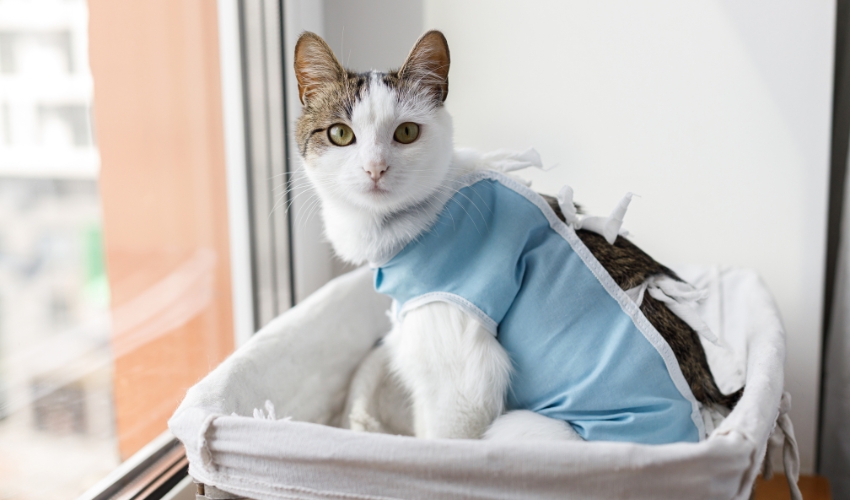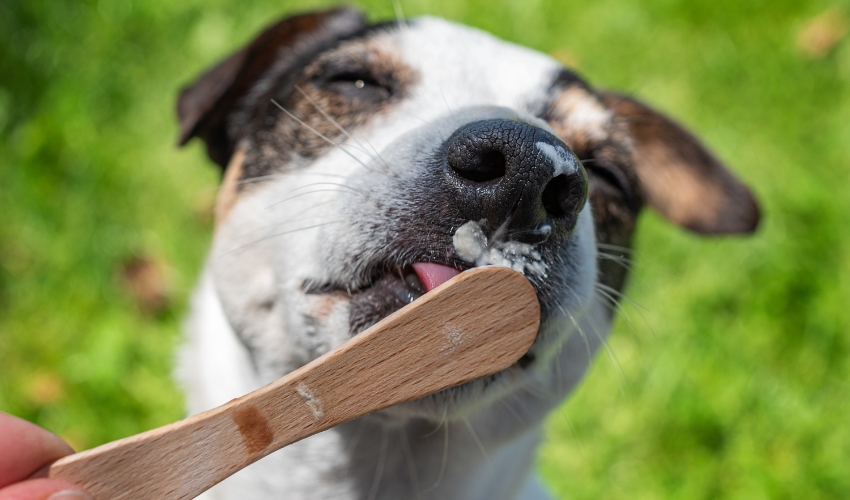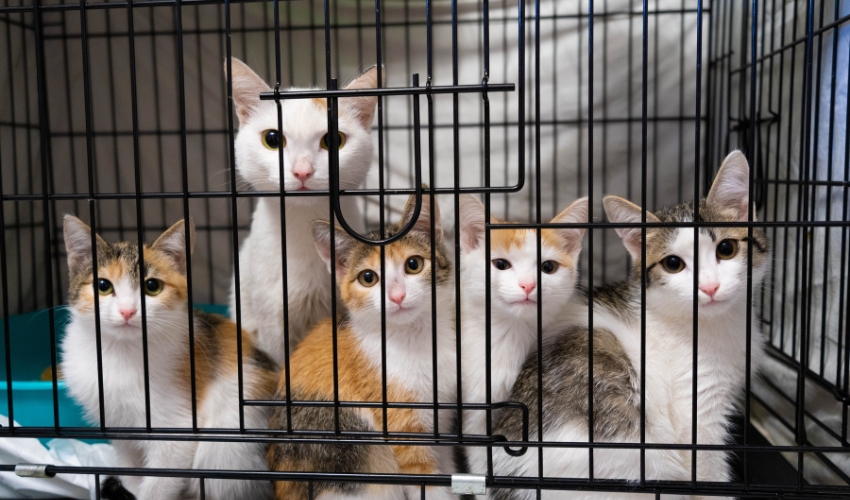Kennel cough, also known as canine infectious respiratory disease (CIRD) or infectious tracheobronchitis, is a highly contagious respiratory infection in dogs. It is commonly characterized by a persistent, dry, hacking cough.
Pooch with kennel cough will usually show symptoms 2 to 14 days after exposure, and are usually sick for 1 to 2 weeks. A dog with kennel cough can be contagious to other dogs for up to 2 to 3 months after becoming infected.
What Causes Kennel Cough
Kennel cough is highly contagious and often spreads in environments where fur babies are in close proximity to one another, such as kennels, shelters, grooming facilities, and especially dog parks. The infection is transmitted through the air via respiratory droplets expelled during coughing or sneezing. Our canine companions can also contract kennel cough by coming into contact with contaminated surfaces, such as water bowls, toys, or shared equipment.
Bordetella bronchiseptica, this bacterium is one of the primary causes of kennel cough. It can infect the respiratory tract and lead to inflammation, resulting in the characteristic cough.
What Are The Signs and Symptoms of Kennel Cough
- Coughing: The most prominent sign is a persistent, honking cough. The cough may be triggered by excitement, physical activity, or pressure on the trachea.
- Retching or Gagging: Some pooch with kennel cough may display retching or gagging movements, especially after coughing.
- Nasal Discharge: A clear or slightly thick nasal discharge may be present. This is typically more evident if there is a secondary bacterial infection.
- Sneezing: Pooch with kennel cough may exhibit sneezing, which can be a response to nasal irritation.
- Eye Discharge: Watery or discharge from the eyes can occur, particularly if there is a concurrent viral or bacterial infection.
- Fever: In some cases, pooch may develop a mild fever, which can contribute to lethargy and decreased appetite.
- Lethargy: Infected pooch may appear lethargic or have a reduced interest in activities they normally enjoy.
- Loss of Appetite: Kennel cough can lead to a decreased appetite in some dogs.
- Difficulty Breathing: In severe cases or when complicated by other respiratory issues, our canine companion may exhibit difficulty breathing.
How To Treat Kennel Cough
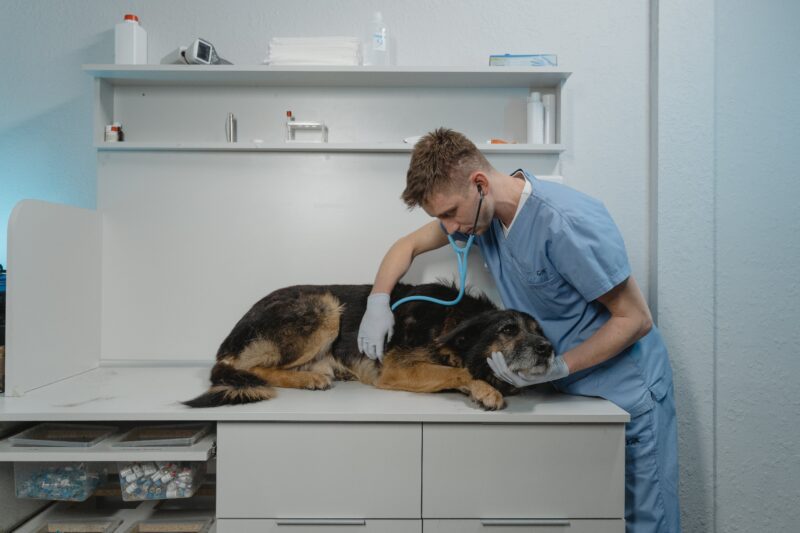
Treatment of kennel cough depends on the severity of the symptoms and the underlying causes. Uncomplicated kennel cough usually goes away on its own and will clear up within three weeks and does not need any treatment. However, for mild cases, medications may be given to help your furry friend recover quickly and prevent the condition from worsening.
Here are common approaches to treating kennel cough:
- Isolation: Pooch with kennel cough should be isolated from other dogs to prevent the spread of the infection.
- Rest: Allow the affected dog to rest and avoid strenuous physical activity, as this can exacerbate coughing.
- Humidification: Using a humidifier in the fur baby’s environment can help soothe the respiratory tract and ease coughing.
- Cough Suppressants: Your veterinarian may recommend cough suppressants to reduce the frequency and severity of coughing. However, use these medications only under the guidance of a veterinarian, as coughing is a natural reflex that helps clear the airways.
- Antibiotics: If there is evidence of a bacterial infection or if the cough persists, antibiotics may be prescribed by your veterinarian to treat the bacterial component of kennel cough.
- Bronchodilators: In cases of severe coughing or respiratory distress, your veterinarian may suggest bronchodilators to be used to open the airways and facilitate breathing.
- Supportive Care: Provide supportive care, including a comfortable and stress-free environment, along with proper nutrition and hydration.
Should I Separate My Canine Companion If He/She has Kennel Cough?
As mentioned earlier, kennel cough is usually not serious, but is highly contagious among our canine companions. You should keep your pooch away from other dogs and public spaces while they are coughing, and for two to three weeks afterwards.
If you have other pets in the household, you should quarantine your sick fur baby until he is fully recovered to prevent the spread of this condition to the rest of the other pets.
How To Prevent Kennel Cough
- Isolate your pooch from other fur babies: Stress and crowded conditions can contribute to the spread of kennel cough, as these factors can weaken your fur baby’s immune system, making them more susceptible to infection.
- Isolate your pooch’s belongings such as food and water bowls, bedding, and toys.
- Wash your hands and clothes: Since you’re handling your fur baby, it is also important to wash your hands and clothes immediately after handling your fur baby or their belongings.
- Disinfect surfaces and items: Thoroughly disinfect all surfaces and items to prevent reinfection.
Does My Fur Baby Need Bordetella Vaccine?
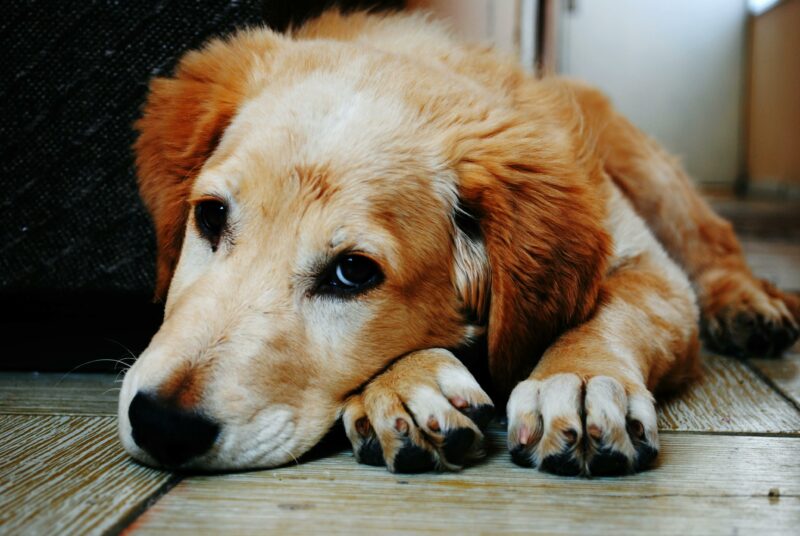
Vaccination against some of the common causative agents, particularly Bordetella bronchiseptica, is available and is often recommended for dogs, especially those in high-risk environments. If you suspect your furry friend has kennel cough, it’s crucial to consult with a veterinarian for proper diagnosis and treatment.
The Bordetella vaccine can prevent kennel cough. It is administered by vets as a squirt in the nose. According to the Animal Clinic of Woodruff, not all pooch need this vaccine, but it is recommended for social pooch and any pooch who will be boarded (most boarding facilities require proof of a recent Bordetella vaccine). Additionally, fur babies with weaker immune systems, including senior dogs and young puppies, are advised to get the vaccine.
Preventing the spread or acquiring kennel cough is essential. Vaccination, good hygiene practices, and minimizing stress can help reduce the risk of infection.



